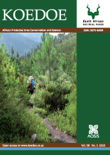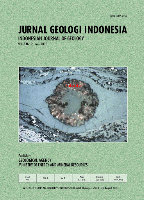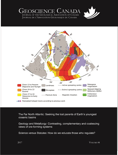
Geoheritage
Scope & Guideline
Fostering Insights into the Interplay of Nature and Culture
Introduction
Aims and Scopes
- Geoheritage Assessment and Conservation:
Research focused on evaluating the significance and preservation of geological sites, including methodologies for assessing the value and threats to geosites. - Geotourism and Education:
Exploration of the role of geotourism in promoting awareness and education about geological heritage, including case studies demonstrating effective practices. - Geological Resources and Cultural Heritage:
Investigations into how geological resources contribute to cultural heritage, including the use of stones and minerals in historical contexts. - Geodiversity and Ecosystem Services:
Studies on the relationship between geodiversity and ecosystem services, highlighting the importance of geological diversity in environmental sustainability. - Technological Innovations:
Application of modern technologies such as GIS, remote sensing, and 3D modeling in the assessment and promotion of geoheritage.
Trending and Emerging
- Integrated Geoconservation Strategies:
A rising trend towards developing comprehensive strategies that integrate geoconservation with local community involvement, sustainable tourism, and education. - Impact of Climate Change on Geoheritage:
Increasing attention to how climate change affects geological sites, with research focusing on adaptation and mitigation strategies for preserving geoheritage. - Cultural and Intangible Heritage Connections:
Growing exploration of the ties between geological heritage and cultural or intangible heritage, emphasizing how geological features influence local cultures and identities. - Use of Digital Technologies:
Emerging themes include the application of digital technologies such as augmented reality and virtual reality in promoting geoheritage and enhancing visitor experiences. - Public Engagement and Citizen Science:
A focus on public engagement initiatives and citizen science as tools for enhancing awareness and participation in geoheritage conservation efforts.
Declining or Waning
- Traditional Geological Studies:
There is a noticeable reduction in papers that focus solely on classical geological studies without integrating aspects of tourism, education, or conservation. - Static Geosites Documentation:
Research that merely documents geosites without assessing their potential for conservation or tourism is becoming less common, as there is a growing emphasis on dynamic assessments. - Geological History without Contemporary Relevance:
Papers focused on geological history that do not connect to current environmental issues or societal needs are appearing less frequently, indicating a shift towards more applied research.
Similar Journals

Ecological Questions
Bridging Theory and Practice in Ecological Studies.Ecological Questions is a distinguished academic journal published by WYDAWNICTWO UNIWERSYTETU MIKOLAJA KOPERNIKA, dedicated to the diverse and evolving field of ecology. With ISSN 1644-7298 and E-ISSN 2083-5469, this journal promotes the dissemination of high-quality research and innovative methodologies in ecological modeling, evolutionary studies, and geographical planning. Its ongoing publication, active from 2002 to 2024, reflects its commitment to fostering interdisciplinary dialogue among ecologists and related scientists. Currently categorized in Q3 across several fields, including Ecology and Ecological Modeling, Ecological Questions serves as a vital resource for both emerging and established researchers, providing insight into current environmental challenges and theoretical advancements. Access to this journal enhances the knowledge base within academia, equipping professionals and students alike with essential information to advance their work and studies in ecology.

Arctic Science
Illuminating the Path to Arctic ResilienceArctic Science is a premier journal published by Canadian Science Publishing, dedicated to advancing our understanding of the Arctic region through interdisciplinary research. With a strong emphasis on topics within Agricultural and Biological Sciences, Earth and Planetary Sciences, and Environmental Science, the journal has established itself as a leading publication, reflected by its impressive Q1 category quartiles and significant SCOPUS rankings. The journal's scope encompasses vital issues related to Arctic ecosystems, climate change, and sustainable resource management, making it an essential resource for researchers, professionals, and students committed to addressing the challenges facing this unique environment. Published from 2019 to 2024, Arctic Science aims to foster globally relevant discussions and disseminate high-quality research that is critical for the scientific community and policymakers alike.

Geam-Geoingegneria Ambientale e Mineraria-Geam-Geoengineering Environment and Mining
Advancing sustainable practices in geoengineering and mining.Geam-Geoingegneria Ambientale e Mineraria (Geam-Geoengineering Environment and Mining), published by PATRON EDITORE S R L in Italy, is a pivotal journal dedicated to the intersection of environmental engineering, geotechnical engineering, and engineering geology. With an ISSN of 1121-9041, this journal has been a key source of valuable research since 2007, fostering the dissemination of knowledge within these critical fields. Despite its current ranking in the Q4 category for both Environmental Engineering and Geotechnical Engineering in 2023, the journal aims to elevate its standing by promoting high-quality submissions that address pressing issues related to sustainable geoengineering practices and environmental impacts of mining activities. Although not an open-access journal, Geam-Geoingegneria Ambientale e Mineraria offers insights that are crucial for professionals, researchers, and students looking to contribute to the advancement of geoengineering approaches and their implications for both the environment and mining industries. As it continues to bridge theoretical frameworks with practical applications, the journal stands as an important avenue for scholarly discourse and innovation in these domains.

KOEDOE
Championing open access to vital ecological research.KOEDOE, an esteemed journal in the field of ecology and environmental science, has been a vital platform for scholarly discourse since its inception in 1958. Published by AOSIS in South Africa, this open-access journal facilitates the dissemination of high-quality research and insights, contributing to advancements in ecological understanding and practice. With an impressive Q2 ranking in Ecology and Q3 ranking in Ecology, Evolution, Behavior, and Systematics as of 2023, it serves as a crucial resource for researchers, professionals, and students alike. The journal’s commitment to open access ensures that the latest findings are readily available to a global audience, fostering an inclusive academic community. KOEDOE's inception periods span significant years, marking its evolution alongside the ecological challenges of our time. Its Scopus ranking underscores its impact and relevance in the fields of agricultural and biological sciences, making it an essential read for those seeking to deepen their understanding of ecological dynamics.

Andean Geology
Uncovering the Secrets Beneath the AndesAndean Geology is a prominent open-access journal, published by the SERVICIO NACIONAL GEOLOGIA MINERVA in Chile, dedicated to advancing the fields of geology, geochemistry, petrology, paleontology, and stratigraphy. Since its inception in 2009, the journal has provided a vital platform for the dissemination of research pertaining to the Andean region and beyond, featuring high-quality articles that contribute to our understanding of earth sciences. With an impressive ranking in the Q2 and Q3 quartiles across multiple categories, it reflects a growing impact in the geological community, evidenced by its status within Scopus rankings. Andean Geology not only supports the academic pursuit of knowledge with its open-access policy but also aims to foster collaboration among researchers and professionals worldwide, ensuring wide accessibility of groundbreaking research and promoting academic engagement. By covering a diverse array of topics relevant to the dynamic field of geology, this journal serves as an essential resource for students, professionals, and scholars dedicated to earth and planetary sciences.

Indonesian Journal of Geoscience
Advancing Geoscience Knowledge for a Sustainable Future.Indonesian Journal of Geoscience, published by the GEOLOGICAL AGENCY, is a vital platform for sharing cutting-edge research in the field of Earth and Planetary Sciences. With an ISSN of 2355-9314 and E-ISSN of 2355-9306, this open-access journal has been making significant contributions to the geoscientific community since its establishment in 2013. Operating out of Bandung, Indonesia, the journal is dedicated to disseminating high-quality research across diverse areas, making it an essential resource for researchers, professionals, and students alike. Recognized in the 2023 Q2 category in Earth and Planetary Sciences, it currently ranks #134/195 among general Earth and Planetary Sciences journals in Scopus, reflecting its growing prominence and academic rigor. The journal seeks to foster scientific discussions by publishing original research, reviews, and case studies that address contemporary challenges and advancements in geoscience, thus contributing to a deeper understanding of our planet. With its commitment to open access, the Indonesian Journal of Geoscience ensures that vital research is accessible to a global audience, encouraging collaboration and innovation in the field.

GEOSCIENCE CANADA
Elevating Earth Science Discourse Since 1979GEOSCIENCE CANADA is a premier academic journal published by the Geological Association of Canada, dedicated to advancing knowledge and research in the field of Earth and Planetary Sciences. With an ISSN of 0315-0941 and an E-ISSN of 1911-4850, this journal has been a key platform for scholarly discourse since its inception in 1979, continuing its valuable contributions through to 2024. Positioned in the Q2 quartile for Earth and Planetary Sciences (miscellaneous) as per the 2023 rankings, GEOSCIENCE CANADA is recognized for its rigorous peer-review process and impactful publications, making it a vital resource for researchers, professionals, and students alike. The journal covers a broad array of topics within geoscience, promoting innovative research and discussions pertinent to geologists and Earth scientists across Canada and internationally. While it does not currently provide open access options, the journal continues to support a diverse readership eager to engage with cutting-edge studies that shape the understanding of Earth's processes.

AIMS Geosciences
Empowering the Geosciences Community with Rigorous ResearchAIMS Geosciences, published by the American Institute of Mathematical Sciences (AIMS), is an esteemed open-access journal that has been serving the geosciences community since its inception in 2015. With an ISSN of 2471-2132, the journal disseminates high-quality research pertaining to various disciplines within geosciences, including geology, meteorology, oceanography, and environmental science. By promoting freely accessible research findings, AIMS Geosciences aims to foster collaboration and innovation among researchers, professionals, and students alike. The journal upholds rigorous peer-review standards, ensuring that only the most impactful research is shared with the global academic community. Situated at the forefront of geoscientific inquiry, this journal not only enhances the visibility of cutting-edge research but also contributes significantly to the understanding of Earth's processes, making it an essential resource for anyone engaged in this vital field.

Visnyk of V N Karazin Kharkiv National University-Series Geology Geography Ecology
Connecting global perspectives in geology, geography, and ecology.Visnyk of V N Karazin Kharkiv National University-Series Geology Geography Ecology is a prominent academic journal dedicated to the fields of geology, geography, and ecology. Published by the esteemed V N Karazin Kharkiv National University, this journal aims to disseminate high-quality research findings and theoretical perspectives that advance understanding in these critical scientific areas. With the ISSN 2410-7360 and E-ISSN 2411-3913, it serves as a vital platform for scholars, researchers, and students striving to contribute to environmental science and sustainable development. The journal promotes open access, ensuring that research is readily accessible to a broad audience, thus facilitating the exchange of knowledge across borders. Its commitment to scholarly excellence makes it an essential resource for anyone engaged in the study of Earth's systems and their interconnections. For additional information and to submit your research, please visit the journal's website.

Conservation Science in Cultural Heritage
Empowering Voices in Cultural Heritage ConservationConservation Science in Cultural Heritage is a leading academic journal dedicated to advancing the field of conservation science and museology, proudly published by MIMESIS EDIZIONI since 2001. Operating as an Open Access journal, it facilitates unrestricted dissemination of research to scholars, professionals, and students worldwide, promoting the exchange of innovative ideas essential for preserving our cultural heritage. With ISSN 1974-4951 and E-ISSN 1973-9494, the journal has earned recognition for its rigorous scholarly contributions, achieving a Q3 ranking in both conservation and museology categories as of 2023. It ranks at the 57th percentile in Museology and the 44th percentile in Conservation according to Scopus metrics, reflecting its growing impact in the academic community. The journal publishes a diverse range of articles, covering interdisciplinary aspects of conservation practices, research methodologies, and case studies, offering critically important insights for furthering understanding and promoting best practices in the safeguarding of cultural artifacts. Through this international platform, Conservation Science in Cultural Heritage aims to inspire collaborative efforts and elevate the standards of research in the vital area of cultural preservation.